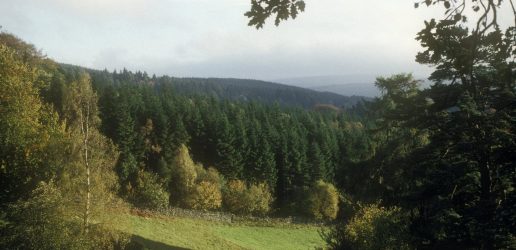A recent project has investigated the potential of using Natural Flood Management (NFM) to reduce flooding incidents on the strategic road network.
In the past few years there has been an increase in the number and intensity of rainfall events, leading to significant flooding of the highways network across the country, possibly linked to climate change. This has prompted Highways England to investigate the vulnerability of the strategic road network (SRN) to future flooding, and in particular to identify, assess and recommend measures for managing the predicted increase in flood risk due to climate change.
Our researchers worked with partners Treeconomics, Evans Associates and Kier to assess three flooding ‘hotspots’ in southwest England.
First, a detailed site survey was carried out to pinpoint areas of land contributing runoff to each hotspot, then a hydrological model was applied to the individual catchments.
A ‘time of flow concentration’ function identified fast response zones and pathways. A number of potential NFM measures, including woodland creation, were modelled in order to assess and rank options for reducing runoff volumes across individual catchment areas.
The target flow reduction for removing hotspot status in some catchments was found to be delivered by a combination of agricultural land management measures, such as soil aeration treatments on grassland, improved tillage practices on arable land and targeted tree planting on the highest runoff-producing areas.
The work identified a preferred option for each site, which will be further developed with landowners and managers. If successful, the approach could be rolled out to reduce flooding incidents across the wider highways network.
The installation of new green infrastructure (such as woodland planting) and improved land management practices could help to deliver a more sustainable approach to managing future flood risk.
New research has been published which explores how to enable and encourage access to woodlands for diverse members of the public.
Forest Research has been involved in a project focusing on efforts to improve inclusivity in biosecurity practices by exploring how to integrate different knowledge systems into mainstream decision-making.

Forest Research has released the latest Accredited Official Statistics on woodland and forestry in the UK.
New research has been published which explores how to enable and encourage access to woodlands for diverse members of the public.
Forest Research has been involved in a project focusing on efforts to improve inclusivity in biosecurity practices by exploring how to integrate different knowledge systems into mainstream decision-making.

Forest Research has released the latest Accredited Official Statistics on woodland and forestry in the UK.